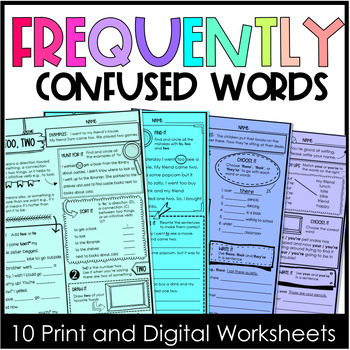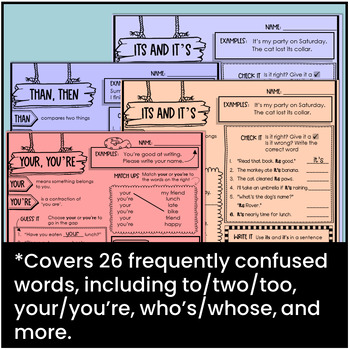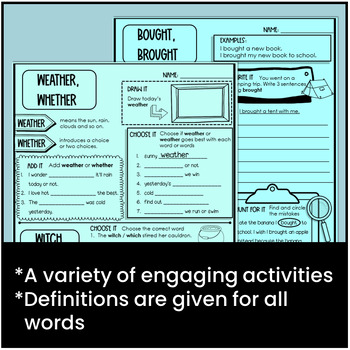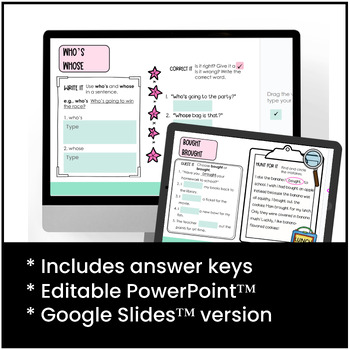Frequently Confused Words Misspelt Words Digital Resource 3rd, 4th, 5th Grade
- Zip
- Google Apps™

Description
10 pages of engaging digital and printable vocabulary worksheets which cover many commonly confused words which sound the same, like homophones, and words that sound similar and are frequently misspelt.
These vocabulary worksheets will help your learners to understand the difference and apply their learning in a variety of ways. Each page has four or five different activities.
Children can complete all activities or choose which pages are relevant for your learners.
Lots of examples, and every page gives a definition of the words for students to refer to while completing their work.
Easy-prep - just print and go!
Answer keys make it super-easy for marking. Display them on the wall, board or project them and students can self-check.
What's included?
- to, too, two
- there, their, they're
- your, you're
- it's, its
- than, then
- bought, brought
- weather, whether
- witch, which
- loose, lose
- who's, whose
- accept, except
- stationery, stationary
- answer keys
- exit tickets
- US spelling and UK spelling versions
- editable PowerPoint™ (text is editable, images and layout aren't)
- Google Slides™ version
I hope you enjoy using these activities with your learners.





